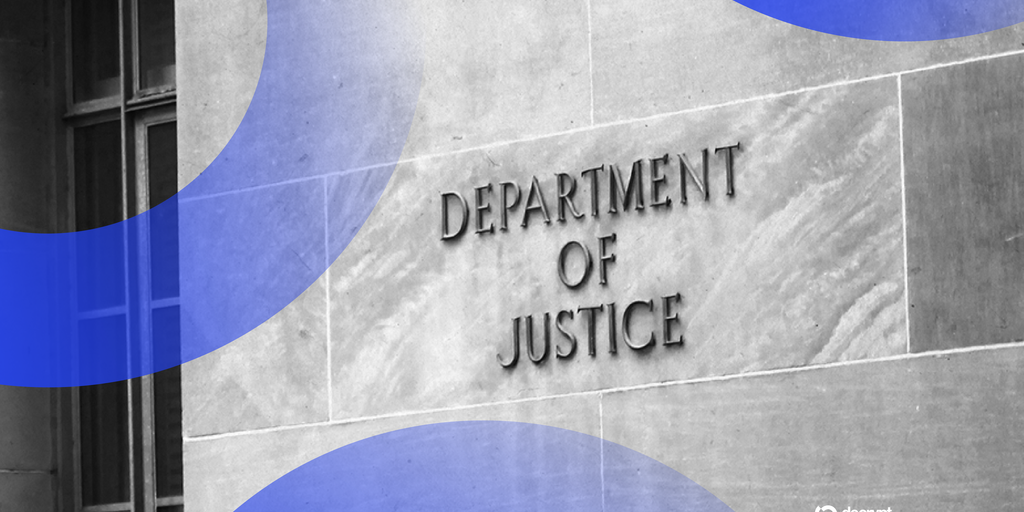The Department of Justice said on Thursday that it would press forward with charges against Roman Storm, who co-founded the Ethereum coin mixer Tornado Cash.
"The Government is proceeding to try Storm on willfully conspiring to commit money laundering, sanctions evasion, and transporting and transmitting funds he knew were criminally derived," a DOJ spokesperson told Decrypt.
Federal prosecutors will argue that Storm engaged in a conspiracy to commit money laundering, operate an unlicensed money transmitter business, and evade U.S. sanctions at trial in a Manhattan courtroom in less than two months, according to a court filing.
The DOJ, however, said that it would abandon one aspect of its conspiracy to operate an unlicensed money transmitter business charge. An illegal money transmitting business is defined as one that fails to comply with U.S. money transmitting business registration requirements, according to federal law.
According to Peter Van Valkenburgh, executive director of Coin Center, a non-profit research and advocacy group, that aspect of the DOJ’s conspiracy charge conflicted with guidance issued in 2019 the Financial Crimes Enforcement Network, or FinCEN, a bureau of the U.S. Treasury Department that combats financial crimes.
FinCen’s guidance advised that “non-custodial entities,” such as Tornado Cash, aren’t money transmitters, Valkenburgh said in a post on X, formerly Twitter.
“Those building neutral, noncustodial technologies should not be held to unreasonable criminal standards based on unsupportable interpretations of the law,” Amanda Tuminelli, executive director and chief legal officer of DeFi Education Fund, told Decrypt.
The DOJ’s affirmation of charges against Storm follows the circulation of an agency memo last month that said it will no longer—in most cases—pursue charges against mixing services, among other entities like exchanges. In the memo, the DOJ also stated that it would go after bad actors using a crypto service to launder funds, as opposed to the platform itself.
Industry advocates celebrated the memo as evidence that the DOJ was turning a new leaf against mixers under the crypto-friendly regime of U.S. President Donald Trump. Privacy advocates, including whistleblower Edward Snowden, have described services like Tornado Cash as nothing more than a tool, which can help users maintain on-chain privacy.
Strom’s case was set for trial after U.S. District Judge Katherine Polk Failla rejected his motion to dismiss the case in September. Although Storm argued that his development of Tornado Cash was protected as free speech, Failla found that using computer code to further alleged money laundering is not a First Amendment-protected activity.
In March, the U.S. Treasury removed Tornado Cash from its list of entities sanctioned by the Office of Foreign Assets Control, or OFAC. The restrictions, which prevented anyone in the U.S. from using the service, were first imposed in 2022. At the time, the U.S. Treasury said that Tornado Cash had been used to “launder more than $7 billion” since its creation in 2019.
The U.S. Treasury’s about-face came months after the United States Court of Appeals for the Fifth Circuit found the agency had overstepped its authority in sanctioning Tornado Cash. The court found that immutable smart contracts, which can’t be altered or controlled, shouldn’t be classified as property, as the sanctions against Tornado Cash implied.
A year ago, a Dutch court sentenced Alexey Pertsev, another Tornado Cash developer, to 64 months in prison for money laundering. However, he was released from prison in February, as he prepared to pursue an appeal, under the condition of electronic monitoring.
The DOJ, Storm, and his attorneys, did not immediately respond to a request for comment from Decrypt.
Edited by James Rubin
Your Email










